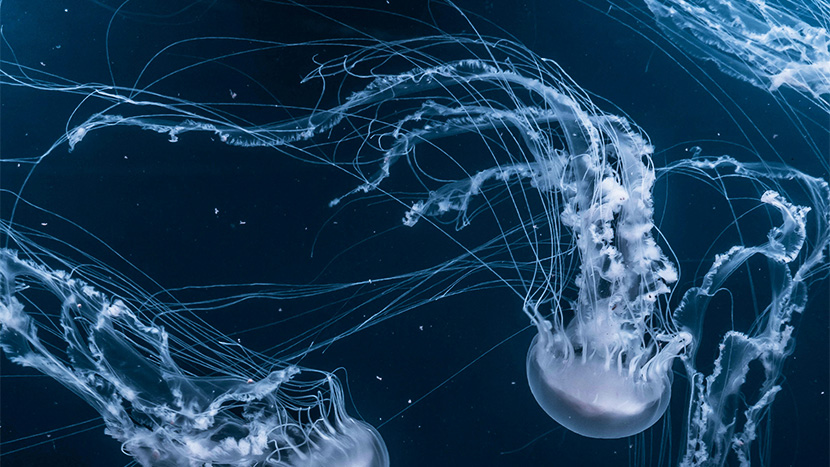AI in Marine Biology: A Game-Changer for Ocean Research
Artificial intelligence (AI) is changing many fields, and marine biology is no exception. Scientists now use AI to gather more accurate data, predict ocean changes, and better understand marine ecosystems. By making tasks automated and processing big amounts of information quickly, AI is becoming a game-changer for ocean research. It’s interesting to note that some of the same technologies that are used in online gambling systems are now being modified to help marine biologists, demonstrating the technology’s versatility.
AI Technology: From Online Casino Analytics to Marine Research
AI’s role in analyzing large data sets and making accurate predictions has been widely used in online casinos, which have become particularly popular in Spanish-speaking Latin American countries. In that industry, AI helps predict customer behaviors, detect fraud, and improve the gaming experience. On this website, users from Latin America can learn more about online casinos through detailed reviews and comparisons. Also, AI gives an opportunity to compare key aspects such as security, game variety, payment options, customer service, and more. These same technologies are now being used in marine biology. By using AI’s strength in data processing, scientists are able to use similar algorithms to analyze different oceanic data, tracking everything from fish migration to water temperatures.
Just like AI helps predict trends in online casinos, it can predict changes in marine environments. For example, ocean researchers can now use AI to help them understand how pollution, climate change, and human activities impact ocean life. AI allows researchers to find patterns that would be impossible to detect manually, enhancing the efficiency and accuracy of their studies.
How AI is Accelerating Marine Biology Discoveries
Marine biology research was always a slow process. Scientists relied on handmade ways of collecting and analyzing data. These sometimes took years. AI helps them speed up this process by making data collection and analysis automated. Drones equipped with AI cameras can now shoot real-time footage of marine life and allow scientists to study animal behaviors without disturbing their natural habitats.
Moreover, AI helps marine biologists discover new species and understand the ocean better. Machine learning algorithms can scan massive datasets to identify patterns and species that may have gone unnoticed. AI assists in creating maps of those parts of the ocean that were unreachable earlier, which are now achievable, hence adding to the rise in knowledge about the deep ocean environment.
In one exciting case, AI systems helped researchers identify a new species of fish living thousands of feet below the ocean’s surface. Without this new technology, such discovery might never have been made, highlighting how powerful AI can be in advancing marine biology research.
The Use of AI in Monitoring Marine Ecosystems
One of the most important uses of AI in marine biology is monitoring marine ecosystems. AI systems can track changes in water temperature, pollution levels, and marine animal populations in real-time. By continuously collecting and analyzing this data, AI helps scientists detect problems early, giving them a chance to respond before these issues become more serious.
For example, AI tools are used to monitor coral reefs. Corals are highly sensitive to changes in their environment, and AI helps detect early signs of bleaching. Bleaching is a condition where corals lose their color and die due to stress. With this information, scientists can implement measures to protect and restore coral reefs, which are crucial to marine biodiversity.
Another very important use of AI is in the fight against illegal fishing. AI-powered satellite systems can track suspicious activity in the sea in real-time, alerting authorities about potential illegal fishing activities. This is crucial in protecting endangered species and maintaining the balance of marine ecosystems. For example, in Latin and South America, where illegal fishing is a significant issue, these AI technologies are being used to monitor vast coastlines and protect marine biodiversity, especially in areas like the Pacific coast and the Amazon River basin.
Marine Biology and AI: The Future of Ocean Exploration
AI has opened new doors for ocean exploration. Autonomous underwater vehicles (AUVs) equipped with AI systems are now being used to explore the deepest parts of the ocean, areas that are too dangerous or remote for human divers. These AI-driven robots can collect samples, map the ocean floor, and even take high-quality images of marine life, all without human intervention.
As new technology continues to improve, we can expect even more groundbreaking discoveries. Future AI systems will likely be able to predict large-scale ocean events, such as tsunamis or changes in fish migration patterns, months in advance. These predictions will be very important for preparing coastal communities and fields that depend on the ocean, like fishing and tourism.
Moreover, AI will continue to improve our understanding of marine ecosystems and how they interact with global climate systems. With AI’s help, we may finally unlock the secrets of the deep ocean and discover new species and resources that could benefit humanity in the future.
Conclusion
AI is undoubtedly a revolutionary change for marine biology, accelerating discoveries, improving monitoring systems, and opening new paths for ocean exploration. It’s fascinating how technology used in completely different fields, like online casinos, can be adapted to help protect and understand our oceans. As AI continues to evolve, its role in marine biology will only grow, helping us to preserve and explore the vast and mysterious world beneath the waves.
In the years to come, AI is likely to be not only a very important tool for tackling some of the biggest challenges facing our oceans, from pollution to climate change, but also a tool for improving gambling and other entertainment industries. By exploring AI, marine biologists are giving themselves a powerful new tool to better understand and protect the ocean’s fragile ecosystems.


































































































